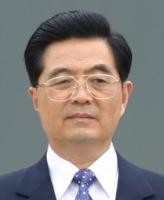Indian Defense Minister A.K. Anthony visited South Korea last week at the invitation of his South Korean counterpart to boost defense cooperation between the two states. His visit came just two months after the Indian external affairs minister visited Seoul and at a time of great turbulence in the strategic environment of the Asia-Pacific region. After having long ignored each other, India and South Korea are now beginning to recognize the importance of tighter ties. The resulting courtship was highlighted by South Korean President Lee Myung-Bak's state visit to New Delhi in January, when he was the chief guest at the Republic Day celebrations. During his stay, New Delhi and Seoul decided to elevate their bilateral relationship to a "strategic partnership."
Despite pursuing a "Look East" policy since early 1990s, New Delhi failed to generate momentum in ties with South Korea. South Korean businesses did not begin to view India as an important destination for investments until after the 1997 financial crisis. South Korea still remained focused on China as an economic partner and has only recently made India a major economic and political priority. With a renewed push from both sides, things have improved dramatically on the economic front over the past few years.
The visit of former Indian President A.P.J. Abdul Kalam to South Korea in 2006 led to the signing of a Comprehensive Economic Partnership Agreement that came into force in January 2010. Even as India-Japan trade stands steady at around $11 billion annually, India-South Korea trade grew to more than $15 billion last year, with the two sides aiming to double it by 2014. South Korean firms are increasing their brand presence in India, and the Indian Chamber of Commerce has also been established in Korea.

